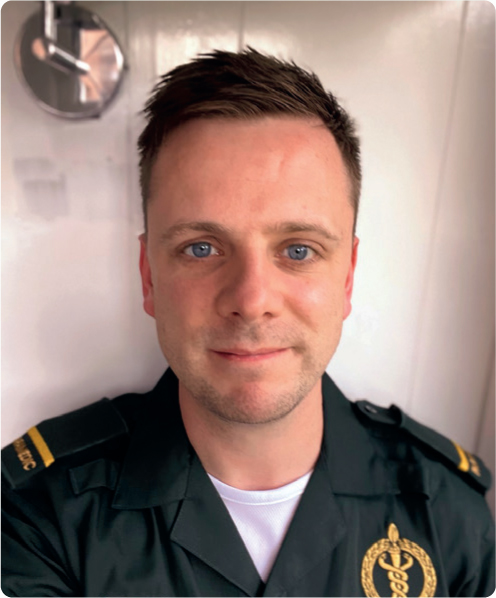
‘…but how will this change my practice?’ This question is one that I have encountered a lot, both as a student and as a newly qualified paramedic (NQP)—usually from cynical crew mates and in reference to obtaining a more thorough patient history, or expanding on differing forms of assessment related to the presenting complaint such as heart sounds, percussion, ECGs, cranial nerve exams, even basic auscultation, the list is endless. After all, if we already know they are ‘going in’, surely we should just ‘stick em’ in the van’ and drive to hospital instead of messing around on scene with our fancy assessments and BSc (Hons) degrees in ambulance driving—who are we trying to kid? Once we remove the cynicism, I propose we are asking the wrong question, and should instead place emphasis on ‘how might what I am doing inform the care of the patient?’.
With this in mind, additional forms of clinical assessment that are now being readily taught on paramedic degrees throughout the UK should not be met with resentment or disdain from clinicians who would not routinely incorporate these into their clinical practice. As paramedics, we all have to ‘paddle our own canoe’ when it comes to maintaining a high standard of clinical practice and continuing professional development (CPD), but we should aim to learn from each other, teaching and sharing knowledge where possible. However, just because we can do something does not always mean we should; the patient did not call 999 because they wanted an ECG or a smart-mouthed NQP rapping and tapping on their chest—they called because they had difficulty in breathing and needed help.
Considering this, a targeted mode of assessment that is informed by a thorough history should ensue with no one clinical finding taken in isolation. Instead, by placing the patient at the centre of everything we do as autonomous practitioners, we inherently create a barometer that guides our clinical decision-making, treatment, and overall care of the patient. This individualised approach is reflected as such in the NHS constitution and is in keeping with Health and Care Professions Council (HCPC) Standards of conduct, performance and ethics in our ability to ‘treat service users and carers as individuals’. A consideration for the four principles of biomedical ethics (Autonomy, Beneficence, Non-Maleficence, Justice) will also reinforce an individualised approach within our clinical practice, and empower the patient to make decisions about their care. Additionally, as paramedics we need to look beyond the decision to convey or leave at home. The patient's journey of care does not end when they leave the ambuance; it is multidisciplinary and a good quality history, targeted assessment, documentation, and handover that is individualised and tailored to the needs of the patient will inform their ongoing treatment and care.
Almost a year into my career as a paramedic, I have accepted that I will make mistakes, and that I will never know everything; every shift on the ambulance comes with its unique challenges, but by maintaining a patient-centred focus, I know I won't go far wrong. Also an appreciation of the fact that prehospital care is, and will forever be, evolving to best meet the needs of the patient and so with it so should we, cynicism will never win out–every day is a school day.

